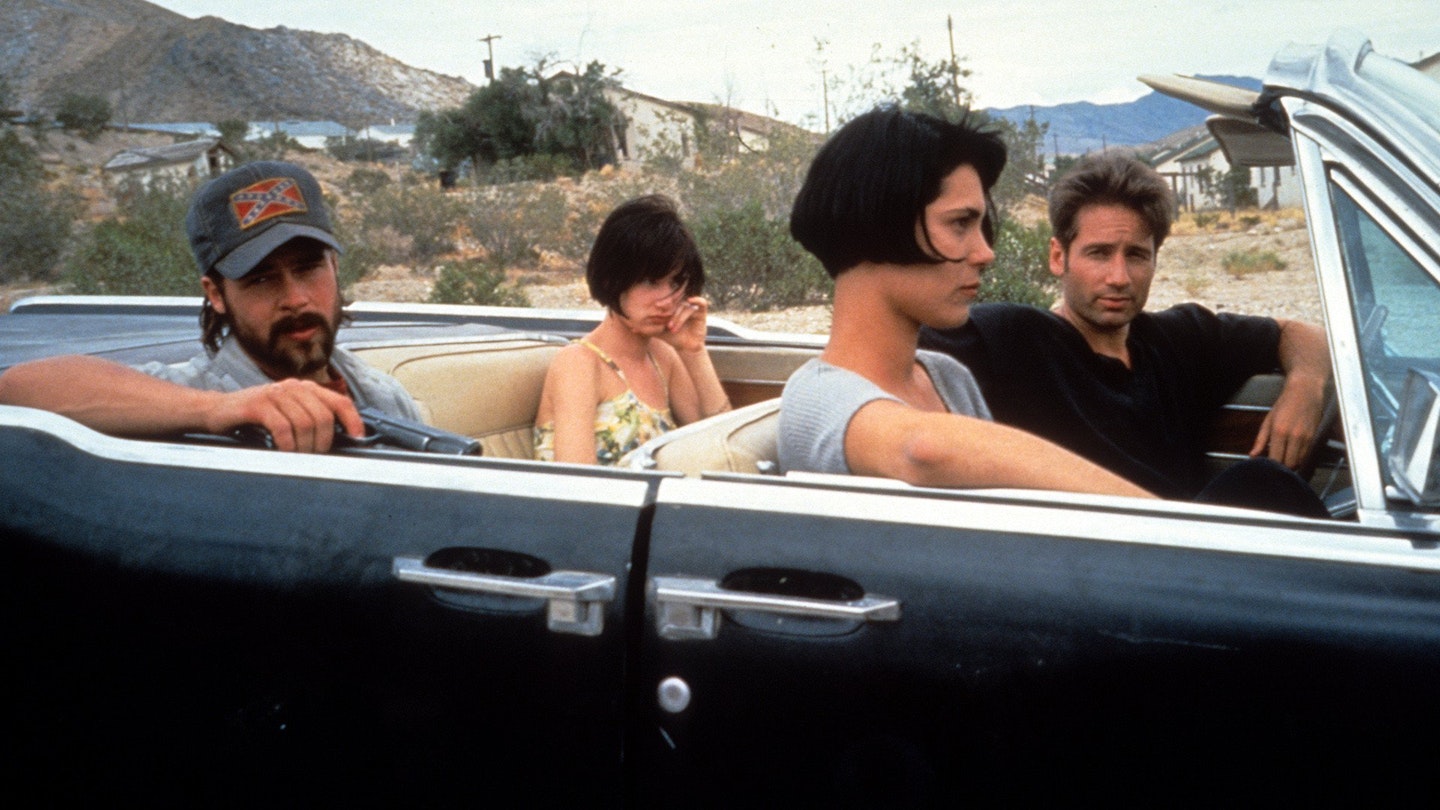The American obsession with serial killers and all they stand for perverse individualism, suicidal nihilism, the general cult of celebrity weirdness is a good subject for a hard, critical, intelligent movie. Unfortunately, Kalifornia isn't it. Structured as a picaresque road movie, it borrows heavily from Terrence Malick's Badlands, but whereas the crazy couple in that movie were placed as the victims of the prevailing cultural myths (of romantic abjection and psychotic heroism), the crazy couple here are monsters, carnival turns, actorly impersonations.
Pitt and Lewis are barely credible as Early and Adele, the white trash holidaymakers from hell, and so it is left to Duchovny and Forbes to carry the movie as their sponsors-turned-prisoners, Brian and Carrie (get the funky De Palma reference?). The movie's premise is interesting enough. Brian is a broken-down writer planning to drive from Tennessee to California to research a coffee-table book about serial killers; Carrie decides to accompany him as photographer. To reduce the cost of the trip, they advertise for travelling companions and end up with Early and Adele, and it is from the point that the two couples meet that the movie loses its grip. The ironies click into place just a little too neatly as Brian and Carrie come to experience at first hand the terrors they wanted to report upon, while the fantasy romance between Early and Adele begins to disintegrate under the pressure of class friction.
Former pop promo director Sena knows how to give a glossy sheen to the blank surfaces and rough edges of roadside America, but the results look cheap and shoddy rather than seductively challenging. The main problem is that, unlike Brian and Carrie, Early and Adele are never granted any degree of self-consciousness, and are merely grotesque cyphers, who, in a final piece of symbolic manipulation, drift towards a showdown in a nuclear test zone. Blame it on the Bomb? What kind of message is that?.
